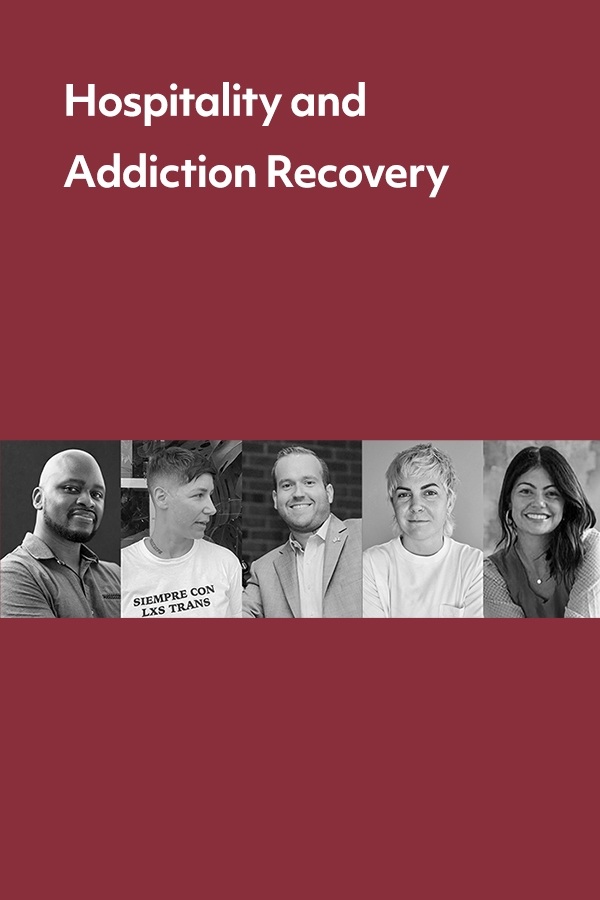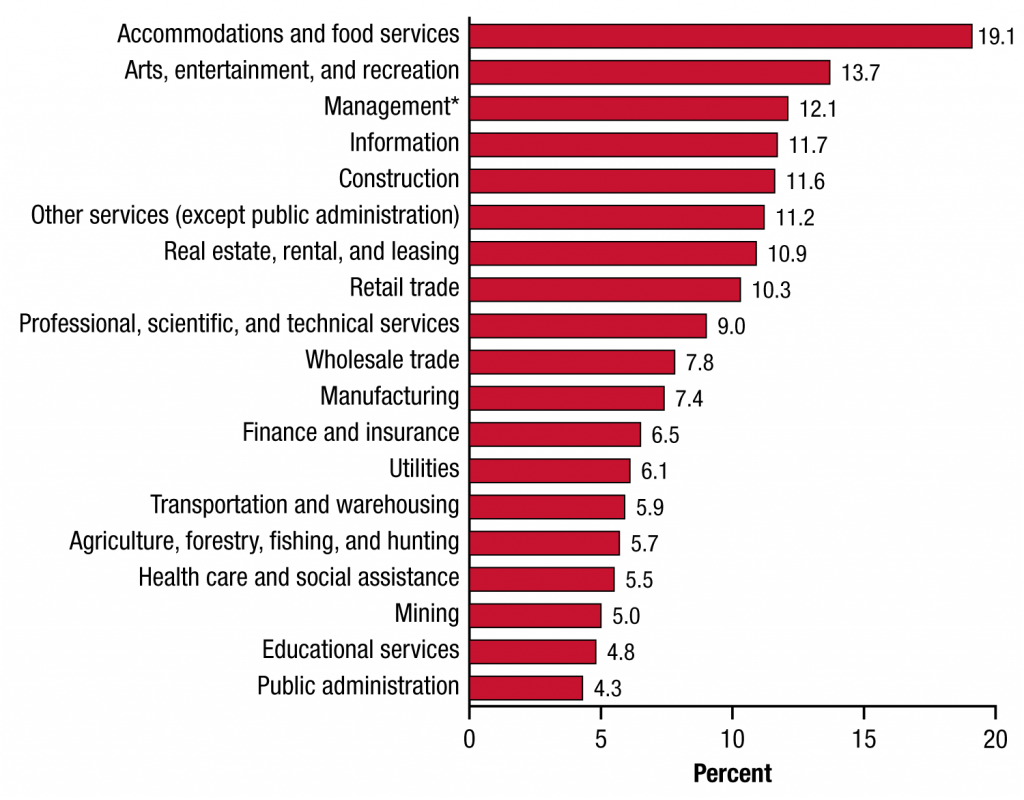The hospitality or service industry is focused on the consumption of food and beverage all day, every day. Culturally, service workers in the hospitality industry work long hours, often 6 or 7 days a week, in heated conditions and under pressure. Whether you are a chef, server, DJ, or bartender, this consumer-driven industry has high demands of service delivery, and people want that service right now. In this pressured and stressful environment, it is commonplace for the culture of hospitality staff to cope and unwind by drinking, taking drugs, and partying. That culture is beginning to change with the emergence of sober chefs, DJs, drinks providers, and zero-proof bars.
“I worked in hospitality as a server and bartender in my early twenties both in the UK and in the US, and I have first-hand experience of people both using substances on the job and partying at the end of service,” says Liv. She was frustrated with how this behavior was the norm and that “if you didn’t partake you were called out for being boring and an outsider,” she says.
This experience is not uncommon. Research shows that the hospitality industry has a higher rate of substance use and use disorders among all working sectors.
Key facts about substance use in the hospitality industry
A 2015 study by the Substance Abuse and Mental Health Services Administration showed that the food and hospitality industry has the highest rates of substance use disorders, and the third-highest rates of heavy alcohol use, of all employment sectors.
Specifically, this research showed:
- Illicit use of full-time workers, aged 18-64, was nearly 20 percent among workers in the food services industry, compared with an overall rate of 8.6 percent among the general working population.
- Rates of addiction among workers in the hospitality industry were 16.9 percent, compared to 9.5 percent among the general working population.
- Comparisons between substance use behavior in 2003-2007 data versus 2008-2012 data showed an increase (from 16.9 percent to 19.1 percent).
However, this data doesn’t paint the full picture. The service industry is changing for the better. With the emergence of recovery-friendly workplaces, employers can positively support those who have been justice-involved, and for recovery to be more of a norm than the alternative.
The hospitality industry is becoming more recovery-friendly
In recent years, the alcohol-free market has boomed. Drinking zero-proof cocktails is no longer uncool. And that’s not all that has changed. In 2016, after losing their friend Ben Murray to addiction, restaurateurs Mickey Bakst and Steve Palmer started a support group for those in the restaurant industry struggling with addiction, called Ben’s Friends. The emergence of hospitality staff in recovery and the popularity of the zero-proof drinks market have revolutionized the industry.
Our panel, Hospitality and Recovery, hosted by Chris of Sans Bar, discussed the experiences and activism of several service providers working in this industry who are openly in recovery.
On 10 November 2021, Workit Health hosted a community discussion and was joined by these incredible panelists:
Jeannine (she/they), a former economist turned sober queer chef, sustainability and culinary instructor, community herbalist in training, the program director of Good Food is Good Medicine, and the co-founder of Chicago Queer Chef Collective.
Hailey Hosler (she/her), who works in the non-alcoholic beverage industry for Athletic Brewing and her own mobile cocktail business (Heart & Honey), as well as volunteering at organizations that support addiction recovery and mental health in the restaurant industry.
Jess (they/them), is a non-binary sober DJ who has become one of the most popular spinners in markets across the east and west coasts, who has opened for several celebrity artists, including British multi-platinum artist, Ellie Goulding, Karmin, three-time Grammy-winning group, The Temptations, and God-Des and She, to name a few. After many years of substance abuse as a young DJ in the nightlife scene, Jess once and for all decided to become a sober human, indefinitely. A few weeks ago, Jess celebrated 500 days of sobriety with their wife and two pitties in Portland, OR.
Robert Ashford (He/him), PhD, MSW, is a recovery scientist focused on substance use, recovery communities, recovery support services, and institutions, integrated behavioral health systems, linguistic patterns, and technological interventions for behavioral health disorders. Robert is also the Executive Director of Unity Recovery, a recovery community organization, and founder of Unity Taqueria, which serves Tex-Mex in Philly and invests in people living in recovery and returning from incarceration.
Last, but certainly not least, our host of this event, Chris Marshall (he/him), is the owner and founder of Sans Bar, an alcohol-free space and community-based in Austin, Texas. He has been alcohol free since 2007. He used to work as a substance use counselor in 2009 and witnessed his clients struggle to remain abstinent from alcohol after they exited treatment. He founded Sans Bar in 2017 with the belief that everyone deserves a safe, sober, and inclusive environment where they can authentically connect with others. Chris has been featured in Men’s Health magazine, The New York Times, and USA Today.
You can view the recording of the panel discussion about recovery in the service industry here.










